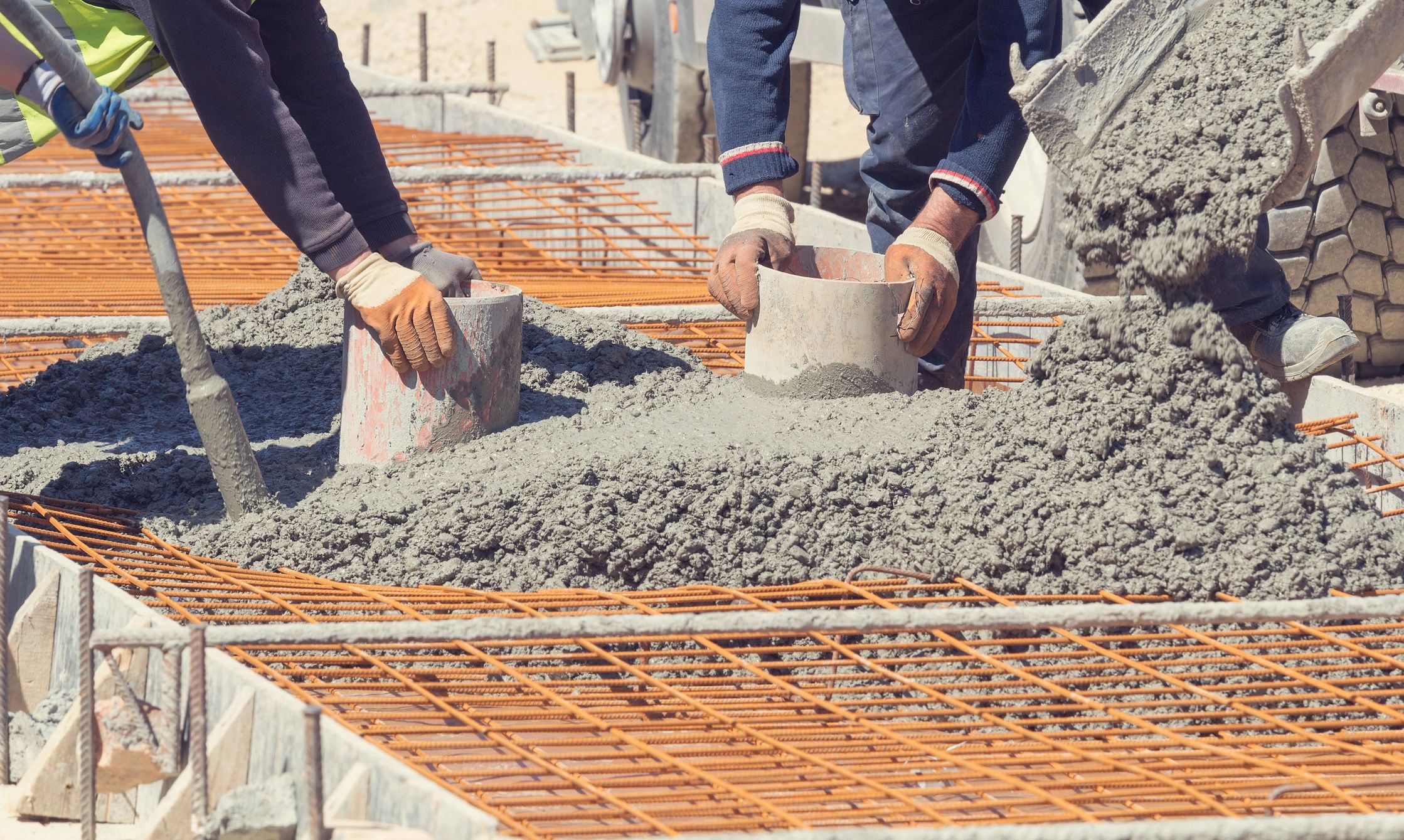
Recognizing the Crucial Function of a Concrete Specialist in Modern Construction and Style
Concrete specialists are vital to the building and style sectors. Their expertise guarantees that structures are not only sturdy yet likewise aesthetically pleasing. They involve in different duties, from task intending to quality assurance, and collaborate with designers and engineers. With advancing patterns and innovations, their duty is more important than ever. Comprehending their influence can reveal insights into modern building methods and the future of structure design.
The Significance of Concrete in Construction
Numerous products are employed in building, concrete remains a cornerstone of contemporary building practices due to its versatility, toughness, and longevity. This composite product, made from cement, water, and accumulations, can hold up against considerable stress and is resistant to fire, weather, and pests, making it ideal for diverse applications. Concrete's flexibility enables it to be built right into numerous shapes and dimensions, promoting innovative architectural designs.
Its thermal mass residential or commercial properties add to power performance, assisting to control indoor temperatures. The widespread accessibility of basic materials and the relatively affordable of concrete likewise enhance its appeal for massive tasks, from industrial buildings to framework like bridges and roads. As urbanization proceeds to rise, the demand for lasting and reputable structure products solidifies concrete's essential function in construction, making it an essential selection for home builders and designers intending for long life and resilience in their jobs.
Key Responsibilities of a Concrete Professional
Concrete specialists play a necessary duty in the building process, with a number of crucial duties that assure task success. Their jobs include project preparation and style, product choice and monitoring, as well as maintaining quality assurance and assurance throughout the task lifecycle. Comprehending these obligations is essential for appreciating the professional's influence on building outcomes.
Project Planning and Design
When beginning on a building project, effective job preparation and design play an essential function in a concrete service provider's responsibilities. The specialist should collaborate very closely with clients, designers, and designers to comprehend the job's specs and objectives. This includes evaluating site problems, reviewing layout needs, and determining the scope of work. A concrete service provider is also accountable for creating timelines and budget plans, ensuring that all phases of the task line up with overall purposes. Additionally, they have to prepare for potential difficulties and design remedies to maintain task efficiency. By carefully planning and designing each element of the concrete job, the service provider sets the foundation for effective implementation, making sure architectural integrity and adherence to security requirements throughout the building and construction procedure.
Product Selection and Monitoring
Reliable product choice and administration are important responsibilities for a concrete specialist, as these decisions directly impact the top quality and durability of the last framework. Concrete specialists should assess various materials, including accumulations, admixtures, and support kinds, to guarantee they meet project requirements and environmental conditions. They should take into consideration variables such as workability, resistance, and stamina to weathering. Additionally, handling the supply chain is essential, as prompt shipment of materials can incredibly affect job timelines. Service providers have to keep relationships with distributors to secure top quality resources while likewise keeping an eye on stock levels to avoid lacks or excesses. Eventually, this cautious choice and administration of products contribute to the total success of building tasks and the long life of the structures built.
High Quality Control and Guarantee
Quality control and assurance are vital in the building market, specifically for concrete professionals tasked with delivering reputable and durable structures. Concrete specialists must execute rigorous quality assurance actions throughout the building process, guaranteeing that all products meet defined standards and policies (Concrete Contractor Near Me). This consists of keeping an eye on the blending, pouring, and treating procedures to stop flaws and enhance structural honesty. Regular inspections are necessary, allowing contractors to identify and rectify concerns quickly. Furthermore, concrete contractors typically collaborate with architects and engineers to guarantee that the end product straightens with design specs. By adhering to stringent high quality guarantee protocols, concrete professionals not only safeguard the longevity of their work yet additionally copyright the depend on of customers and stakeholders in the building market
Sorts Of Projects Taken Care Of by Concrete Service Providers
Although concrete specialists are often related to large-scale building projects, their know-how reaches a varied series of applications. These professionals are indispensable to property projects, such as driveways, foundations, and patio areas, guaranteeing toughness and visual allure. In industrial construction, they add to the production of floors, pathways, and structural components that satisfy details design and safety requirements.
Furthermore, concrete service providers are involved in framework projects, including roadways, bridges, and tunnels, where their abilities assure structural honesty and durability. They likewise play a critical duty in ornamental concrete applications, such as stamped concrete and refined surface areas, which boost the appearance of different rooms. In addition, their services reach fix and maintenance job, dealing with concerns like cracking or disintegration in existing structures. This adaptability emphasizes the vital role concrete professionals play in both ornamental and useful aspects of modern-day construction and design.
Skills and Certifications Called for
Concrete specialists must have a varied collection of credentials and skills to properly take care of the series of projects they carry out. Proficiency in concrete blending, putting, and ending up is necessary, as is a strong understanding of different kinds of concrete, consisting of reinforced and ornamental choices. Understanding of building and construction methods, blueprints, and project management principles is crucial for effective implementation.
Physical endurance and toughness are crucial due to the demanding nature of the work. Contractors should also have solid analytic capacities to deal with unpredicted challenges throughout projects. Interaction skills are essential for collaborating with clients, engineers, and other tradespeople.
Additionally, obtaining relevant accreditations can enhance a contractor's reliability and increase their occupation possibilities. Constant education and learning in brand-new techniques and materials maintains professionals affordable in a rapidly developing sector. These skills and certifications collectively enable concrete professionals to deliver top quality outcomes successfully and effectively.
The Function of Concrete Service Providers in Safety Conformity
Making certain security conformity is a basic responsibility of concrete specialists, as they browse the complexities of building websites. These professionals are charged with sticking to strict security policies and requirements, which are important for stopping mishaps and guaranteeing the well-being of all website employees. Concrete Contractor in Dallas. Concrete specialists need to execute thorough safety and security strategies that include training workers on appropriate tools use and safety procedures
In addition, they are accountable for examining materials and work processes to identify possible threats. By performing regular security audits and threat evaluations, concrete contractors can proactively address issues before they rise. They collaborate with other building specialists, such as engineers and job managers, to incorporate safety actions into the general project technique. Inevitably, the dedication of concrete service providers to security compliance not only protects employees but also enhances job efficiency and top quality, reinforcing their essential function in modern-day building and construction.
Patterns and Developments in Concrete Layout
Current advancements in concrete style have presented a variety of trends and advancements that focus on sustainability and aesthetic appeals. Lasting concrete solutions, ornamental completing strategies, and smart concrete technologies are reshaping the industry. These developments not just boost architectural stability yet also add to ecologically responsible construction practices.
Sustainable Concrete Solutions
As the building and construction sector increasingly focuses on sustainability, innovative concrete options are arising to reduce ecological effect while boosting efficiency. One famous fad is making use of recycled products, such as smashed concrete and industrial results, which not just lowers waste but also enhances the concrete's homes. Advancements in admixtures, including fly ash and slag, contribute to lowered carbon emissions during production. An additional considerable technology entails the growth of permeable concrete, which allows water to flow via and minimizes overflow, minimizing flooding and groundwater depletion. Additionally, the rise of carbon capture modern technologies in concrete production holds guarantee for more exhausts reduction. These sustainable concrete remedies exemplify the industry's dedication to ecologically liable construction techniques.

Attractive Finishing Strategies
A huge selection of attractive finishing strategies have actually arised in concrete layout, transforming simple surfaces right into aesthetically striking elements. Techniques such as stamping, staining, and polishing enable a vast array of aesthetic possibilities, accommodating varied design choices. Stamped concrete mimics all-natural products like rock and block, while staining introduces vivid shades that boost the surface area's allure. Sleek concrete, known for its streamlined surface, adds sophistication to both business and property areas. In addition, microtopping and overlay systems give cutting-edge choices for revitalizing existing concrete. These methods not only improve the visual characteristics however likewise improve durability and upkeep. As trends progress, the integration of attractive surfaces remains to play an essential duty in contemporary construction, weding capability with imaginative expression.

Smart Concrete Technologies
While standard concrete continues to be a staple in building and construction, the emergence of smart concrete technologies is revolutionizing the market by incorporating advanced functions that enhance efficiency and sustainability. These innovations consist of self-healing concrete, which uses embedded germs that trigger upon splitting, and sensor-equipped concrete that monitors architectural wellness in real-time. Additionally, thermochromic and piezoelectric concrete can adapt to ecological modifications and produce electricity, specifically. The application of environment-friendly ingredients and recycled materials additionally adds to minimizing the carbon footprint of concrete manufacturing. As these innovations remain to advance, they promise to enhance sturdiness, lower upkeep costs, and promote greener structure techniques, making them critical for future construction tasks. The duty of concrete contractors is progressively substantial in utilizing these innovations.
Regularly Asked Inquiries
What Elements Impact Concrete Rates in Building Projects?
Concrete prices in construction projects is affected by product costs, labor costs, project dimension, location, schedule of sources, and market demand. Seasonal elements and transport prices can likewise considerably impact the general rates framework.
How Do Climate Problems Influence Concrete Job?
Weather considerably affect concrete work; severe temperatures, moisture, and rainfall can impact setting times, treating procedures, and overall high quality - Concrete Contractor in Dallas. Specialists have to adjust their timetables and approaches to alleviate these environmental impacts for effective job conclusion
What Is the Typical Timeline for a Concrete Task?
A typical concrete project timeline ranges from a few days to several weeks. Variables affecting this period include job size, intricacy, climate condition, and curing times, which jointly figure out the overall conclusion routine.
Can Concrete Contractors Assist With Layout Appointments?
Concrete professionals can indeed assist with layout appointments, offering valuable insights on material option, structural stability, and visual alternatives, guaranteeing that projects fulfill both functional needs and the customer's vision for the completed product.
What Prevail Misconceptions About Concrete Toughness?
Common false impressions regarding concrete resilience include the belief that it is unsusceptible harm which all kinds are equally strong. Actually, aspects like mix design, ecological problems, and maintenance substantially influence concrete's long-term performance.
They additionally play an essential function in ornamental concrete applications, such as stamped concrete and refined surface areas, which enhance the visual facet of different rooms. Effectiveness in concrete blending, putting, and completing is crucial, as is a strong understanding of different types of concrete, including strengthened and attractive alternatives. One popular pattern is the usage of recycled materials, such as crushed concrete and commercial by-products, which website not only decreases waste yet likewise improves the concrete's buildings. While typical concrete remains a staple in building, the appearance of smart concrete technologies is reinventing the industry by incorporating advanced attributes that enhance performance and sustainability. These technologies consist of self-healing concrete, which makes use of embedded bacteria that turn on upon cracking, and sensor-equipped concrete that keeps an eye on structural wellness in real-time.